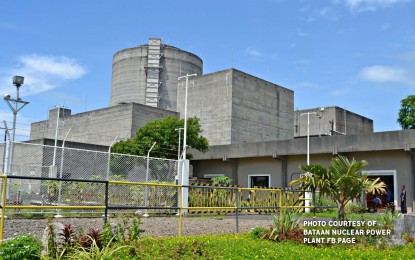The Philippines is facing a critical moment in its energy transition. With fossil fuels still supplying 78% of the country’s electricity, climate advocates and policymakers are calling for an urgent shift toward cleaner alternatives like nuclear power.
Last year alone, the country experienced an unprecedented series of typhoons, displacing over 200,000 Filipinos in under a month. This was capped by Super Typhoon Pepito, which added to the growing cost of climate-related disasters. Heatwaves have also intensified, with school suspensions in Metro Manila already taking place as early as March due to extreme temperatures.
These events are not isolated. Climate data shows 2024 was the warmest year on record. This alarming trend is expected to continue, bringing stronger storms, longer droughts, and heavier rainfall — impacts driven largely by greenhouse gas emissions from burning coal and fossil fuels.
Alpas Pinas, a non-profit advocating for cleaner and more affordable energy, is leading the push to include nuclear power in the Philippines’ future energy mix. The group believes that the time to act is now.
“Right now, our country gets about 78% of its energy needs from coal, which needs to be burned. As one can imagine, this produces a lot of emissions, increasing the amount of greenhouse gases in our atmosphere,” said Pangasinan 2nd District Representative Mark Cojuangco, one of the key advocates for nuclear energy. “A typical nuclear power plant produces nearly zero greenhouse gases, making it one
of the cleanest energy sources available.”
Beyond environmental impact, nuclear energy is also being pitched as a cost-saving option. “Not only is nuclear energy cleaner, the energy it produces is also less costly, resulting in lower electrical bills for Filipino households,” said Alpas Pinas lead convenor Gayle Certeza. “This means more resources for other urgent household expenses.”
Certeza added that reducing reliance on fossil fuels can also bring public health benefits. “The clean nature of this energy source means improved air quality over time. This can, in turn, improve the respiratory health of our kababayans.”
Dr. Caloy Arcilla of the
Philippine Nuclear Research Institute (PNRI) echoed the sentiment, saying, “We believe that we should start moving away from fossil fuels for our country’s energy needs sooner rather than later, considering the many detrimental side effects their emissions pose to the environment.”
The shift will not be without challenges. Reviving the country’s nuclear ambitions means addressing co
ncerns over safety, regulation, and public perception. But proponents argue that newer reactor technologies, strong regulatory safeguards, and international partnerships can help the country overcome these barriers.
President Ferdinand Marcos Jr. has signaled support for exploring nuclear energy, with government agencies like the Department of Energy already drafting roadmaps and feasibility studies.
The debate continues, but for energy advocates, Earth Day 2025 was a reminder that the climate crisis is accelerating. If the Philippines wants to protect lives, reduce electricity costs, and ensure long-term sustainability, the shift away from fossil fuels must begin now — and nuclear energy could be a crucial part of that solution.
Follow Power Philippines on
Facebook and
LinkedIn for more updates.
